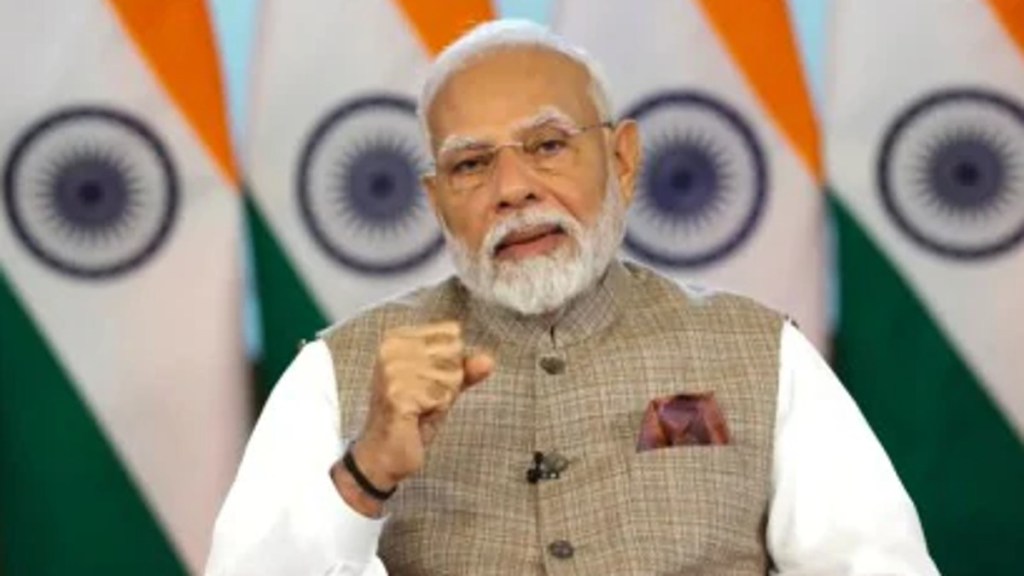By Dr Mohan Kumar
India did well to convene the third edition of the “Voice of the Global South Summit” on 17 August 2024. Like past editions, this meeting too was conducted in virtual mode. It was represented by 123 countries, testifying to the popularity and importance attached to the summit by countries belonging to the Global South.
Why now? Well, the summit took place against the backdrop of geopolitical uncertainty, global economic crisis and enduring conflicts. It is no secret that these have a disproportionate impact on countries of the Global South, even if these countries had no role to play in the crises themselves. PM Modi in his opening remarks expressed serious concern about this. The theme of the summit “An empowered Global South for a Sustainable Future” sums up well the strategic objectives of the meeting. India considers itself an important part of the Global South and has been harping on the theme of unity and solidarity among its members. After all, it was India which took the initiative to have the first and second summits in 2023 and managed to speak on behalf of all countries of the Global South in the Delhi G20 summit.
It so happens that the PM may be visiting Ukraine in the third week of August to meet President Zelensky. There is no denying the fact that the conflict in Ukraine has impacted negatively on growth and sustainability prospects of the Global South. The PM may well convey these concerns to his interlocutors in Ukraine, seeking an end to the war. The same message can be conveyed to Russia as well. This ties in with India’s consistent message that the solution to the war in Ukraine cannot possibly emerge from the battlefield but around diplomacy and negotiations.
On September 22/23 of this year, the United Nations will organize a high-level event called “Summit of the Future” which PM Modi is expected to attend. One of the main themes of the just-concluded Voice of the Global South Summit was global institutions and reformed multilateralism. PM Modi would be well placed to express himself on this subject at the UN Summit of the Future by stressing that the reform of multilateral institutions, particularly the UN, can no longer be put off and that countries of the Global South were beginning to lose patience in this regard. A UN Security Council that does not have representation from Africa, that does not give India its rightful place and that does not reflect contemporary reality does a huge disservice to the Global South. The UN cannot have a bright future if it does not reform itself as soon as possible.
The other important theme of the Voice of the Global South Summit was climate change and energy transitions. After all, the theme of the summit itself was for a sustainable future. But there cannot be a sustainable future for the countries of the Global South without adequate climate finance and accessible technology. In the forthcoming meeting of the Conference of Parties (COP) in Azerbaijan in November, the countries participating in the Global South summit might consider making a joint submission. Climate Change is an existential issue for many countries of the Global South and the top emitters of CO2 have both a legal and moral obligation in this regard.
The summit also devoted considerable attention to the issue of SDGs (Sustainable Development Goals) and women-led development in countries of the Global South. It is no secret that the world is not on track to achieve the SDGs by the specified time frame of 2030. It is extremely important therefore that any stocktaking exercise considers the implications of a large part of the world being left behind when it comes to SDGs. This will be the principal challenge of the forthcoming G20 summit in Rio (Brazil) in the third week of November. Again, there is an opportunity for the Voice of the Global South Summit to make a mark at the G 20 summit by making its presence felt. The Summit did talk of making inter-dependence a strength and there is no better occasion to do it than the G20 summit. Since the Global South countries are not all represented in the G20, India can take on this mantle as it did in the Delhi G20 Summit. It is worth noting that the African Union now is an integral part of G20 summits, thanks to India’s efforts.
India’s leadership role in Digital Public Infrastructure(DPI) is by now well-acknowledged. India has expressed willingness to contribute USD 25 million to a Social Impact Fund to accelerate progress in DPI in the Global South. This would also be critical in bridging the digital divide that exists among countries of the Global South.
PM Modi in his closing remarks at the Voice of the Global South Summit proposed a “Global Development Compact”. While the details remain to be fleshed out, PM spelt out the broad contours thus: The foundation of this Compact will be based on India’s development journey and experiences of development partnership. This Compact will be inspired by the development priorities set by the countries of the Global South themselves. There is no better example of South-South cooperation and India’s unwavering commitment to “Vasudaiva Kutumbakam” or the World is one family.
(The author is a former Indian Ambassador to France and currently Dean/Professor at O.P. Jindal Global University.)
Disclaimer: Views expressed are personal and do not reflect the official position or policy of FinancialExpress.com Reproducing this content without permission is prohibited.

